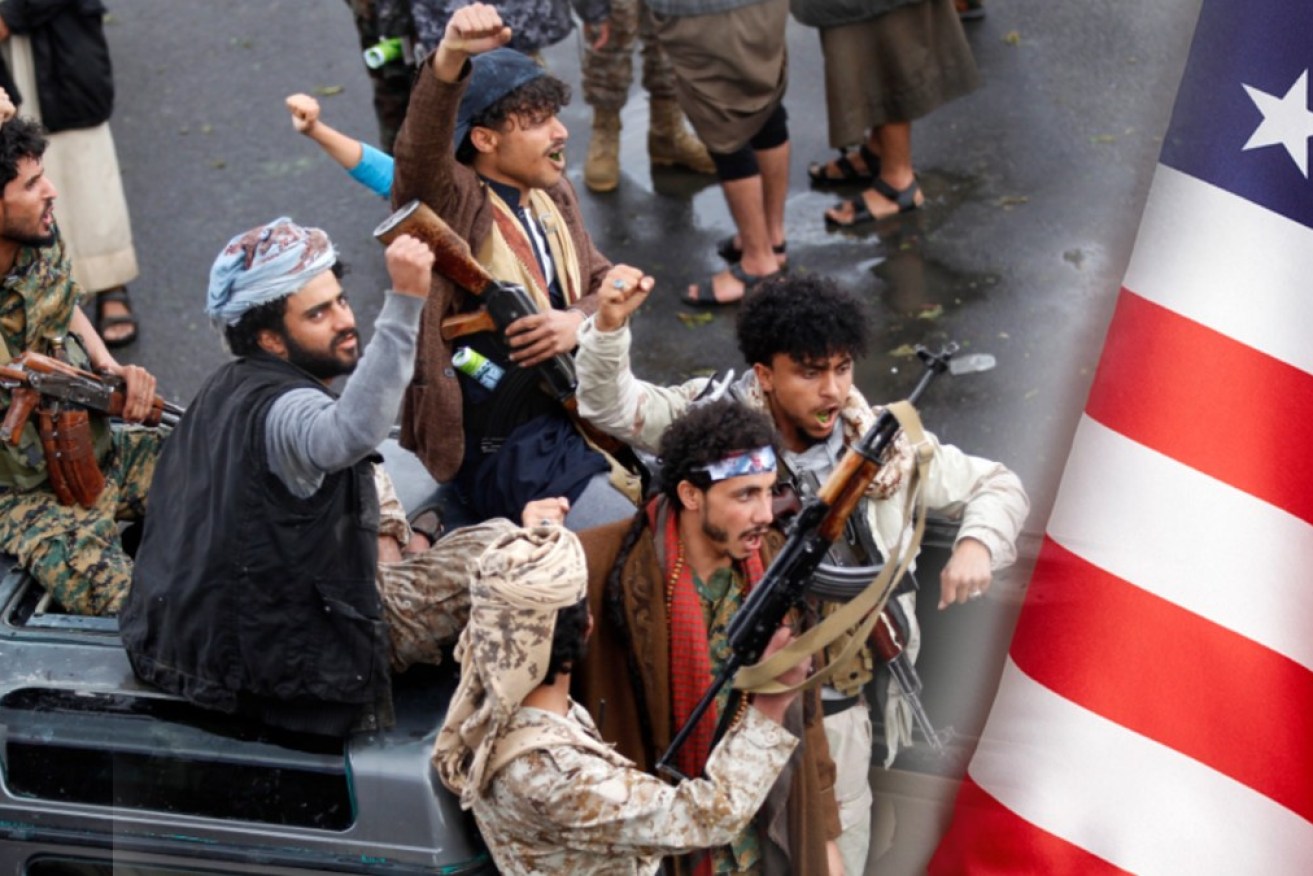Iran-US crisis: Why the killing of Qassem Soleimani triggered WWIII fears

Iranians are angry and have called for revenge, prompting Donald Trump to promise further attacks. Photo: Getty
Last weekend, the phrase ‘World War Three’ started trending on social media around the world.
With attention in Australia understandably focussed intently on the deadly bushfires roaring through communities, you’d be forgiven for missing the events that started such an ominous hashtag.
Much of what gets circulated on Twitter should probably be taken with a grain of salt. But that trending topic is definitely one to watch.
So here’s a rundown of what is driving fears the US could be about to lead its allies into war with the Middle East.
And some background on how we got to a situation where a sea of enraged Iranians is flooding the streets of Tehran in mourning while US President Donald Trump taps out Twitter posts threatening “disproportionate” violence.
Whatever happens next, one thing’s almost certain: The assassination of a powerful military commander last Friday is not the end of the bloodshed.
Iran and the US: A rocky relationship
In the 1950s, US and British intelligence agencies were behind a coup to oust Iran’s democratically elected Prime Minister, Mohammad Mossadeq, who wanted to nationalise his country’s oil industry. Relations between the countries have been tumultuous ever since.
In the 2000s, there were growing fears Iran was developing nuclear weapons. But the country’s 2015 nuclear deal with global powers (including Australia) meant it had to reduce its uranium stockpile – among other conditions – in exchange for the lifting of restrictions that limited Iran’s trade, energy and banking.
But three years on, newly elected President Trump carried out his election promise to withdraw from the “horrible” and “defective” deal.
Last year the relationship soured even further.
In the latest attack on January 3, a US drone fired a pair of missiles near Baghdad airport in Iraq that killed Iran’s Revolutionary Guard General Qassem Soleimani.

Qassem Soleimani, commander of Iran’s Quds Force, was one of seven killed. Photo: Getty
General Soleimani was a big deal. He was the head of Iran’s elite Quds military force and was regarded as the second most powerful person in Iran, behind Supreme Leader Ayatollah Ali Khamenei.
US President Donald Trump wanted him dead for killing American troops in Iraq. The US said it ordered the assassination to “stop a war”.
- Read the US’s full statement on the killing here
Revenge calls, retaliation promises
In a mass public funeral on Tuesday, millions of Iranians gathered in the capital Tehran to mourn the general’s death and demand revenge.
Iran has since designated all US forces “terrorists” over the assassination and abandoned the remaining limits of its 2015 nuclear deal.

The funeral for Major General Qassem Soleimani and other air strike victims. Photo: Getty
Now, the nation is free to speed up its nuclear program, including its ability to build nuclear weapons.
In a show of support for its neighbour, the Iraqi parliament has also voted to kick out US troops from the country which could allow Islamic State militants to seize power again.
The United States just spent Two Trillion Dollars on Military Equipment. We are the biggest and by far the BEST in the World! If Iran attacks an American Base, or any American, we will be sending some of that brand new beautiful equipment their way…and without hesitation!
— Donald J. Trump (@realDonaldTrump) January 5, 2020
When news of the assassination broke on January 3, Mr Trump fired off a series of threatening tweets. He even singled out 52 sites of cultural significance in Iran he said the US military would specifically target to represent each American held hostage by Iran over the years.
Is the world really on the brink of war?
Dr Bryce Wakefield, national executive director of the Australian Institute of International Affairs, conceded the situation was “serious” but dismissed as “hysterical” the suggestions we were entering World War III.
“At the moment, Iran is not in possession of nuclear weapons,” Dr Wakefield told The New Daily.
“Iran is smart and it will probably seek some form of retaliation but I don’t think we can expect that to be an overt military strike against the US – it wouldn’t be in their best interests to do so.”
He said Iran would likely reach out to its allies in the Middle East and elsewhere to strike against US citizens, as well as figures in the US foreign policy or defence communities.
There’s a strong possibility of a terrorist attack,’’ he said.
“Assassinating international figures was always going to lead to retaliation and anger in Iran.”
Dr Wakefield added: “Iran is not Iraq in 2003 – its people are relatively unified, its leadership is relatively competent and its military is stronger than Iraq’s was during the US invasion”.
“The outrage that the general’s assassination has provoked in Iran will turn even more people against the United States and allow the Iranian government to take a much more hard-line path of foreign policy,” he said.
- Read more TND analysis on what’s next for Iran and the US here







